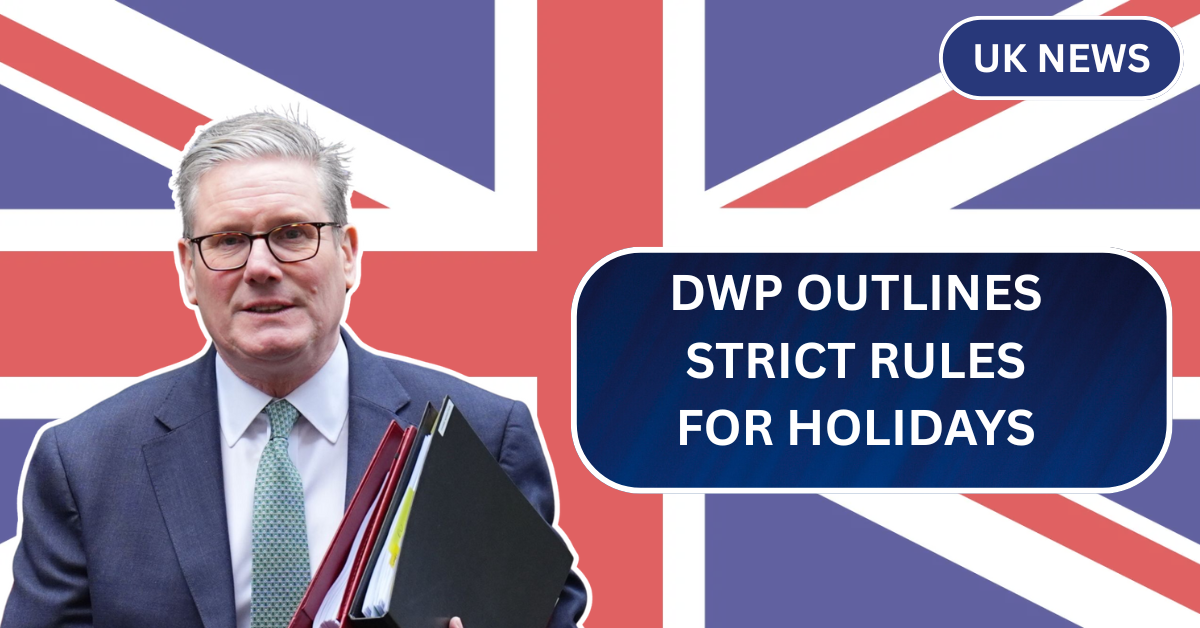Taking a holiday abroad sounds exciting, but if you receive any kind of benefit from the Department for Work and Pensions (DWP), there are important rules you need to know before packing your bags. Whether it’s Universal Credit, Personal Independence Payment (PIP), or other benefits, failing to inform DWP or staying out of the country too long could lead to your payments being stopped.
Here’s a clear breakdown of what you need to keep in mind if you’re planning a trip abroad.
Why Does the DWP Care About Holidays?
The DWP has specific rules because many benefits are linked to your presence in the UK and your current circumstances. If you’re not in the country or your situation changes while you’re away, it may affect your eligibility.
For example, if you claim Universal Credit, you’re expected to be available for work and attend job interviews unless you have an exemption. Going on holiday without telling DWP could give the impression that you’re not meeting these conditions.
How Long Can You Go Abroad Without Losing Benefits?
The maximum time you can usually stay abroad while still receiving certain benefits is 4 weeks, but this depends on which benefit you’re receiving:
- Universal Credit: You can go abroad for up to 4 weeks but must still meet your work-related requirements unless you’re exempt.
- Jobseeker’s Allowance (JSA): You may be allowed a holiday for up to 2 weeks, but you must tell your work coach and still be actively looking for work while away.
- Employment and Support Allowance (ESA): Generally, you can go abroad for up to 4 weeks, but you must notify the DWP.
- PIP: You can leave the UK for up to 13 weeks (or 26 weeks for medical treatment), but any absence over 13 weeks not related to treatment could affect your claim.
- Carer’s Allowance: You may still get it if you’re abroad for up to 4 weeks in a 26-week period, provided you still meet the caring conditions.
When Should You Tell the DWP?
You must always inform DWP before leaving the UK, especially if your absence will last more than a few days. It’s not just about avoiding payment issues — it’s also about ensuring your benefit conditions are updated.
You’ll need to provide:
- The exact dates you’re leaving and returning
- The reason for travel (holiday, medical treatment, family emergency, etc.)
- A contact address and number while abroad
What Happens If You Don’t Tell Them?
If you fail to inform the DWP, they may assume you’re no longer eligible for benefits and pause or stop your payments. Worse, you could be asked to pay back any overpaid benefits, or even face a benefit fraud investigation if they find you’ve withheld information deliberately.
Even if you think your trip is short or harmless, not informing DWP can put your financial support at risk.
Are There Exceptions?
Yes, exceptions exist for specific circumstances like:
- Medical emergencies
- Bereavement
- Government-approved medical treatments
If your situation falls under one of these categories, the DWP may allow you to be abroad longer than the usual limit — but again, you must inform them and provide proper evidence.
Tips to Stay Safe and Compliant
- Check your benefit rules before planning the trip — visit GOV.UK or call DWP for details.
- Inform DWP in advance — always play it safe and give them all travel details.
- Stay available for job search requirements if on Universal Credit or JSA.
- Don’t extend your stay without updating the DWP — even a few extra days can cause problems.
Final Words
A relaxing holiday abroad should not turn into a financial headache. If you’re receiving any DWP benefits, it’s your responsibility to understand the travel rules. By informing them before your trip and sticking to the time limits, you can enjoy your holiday without worrying about losing your support.




